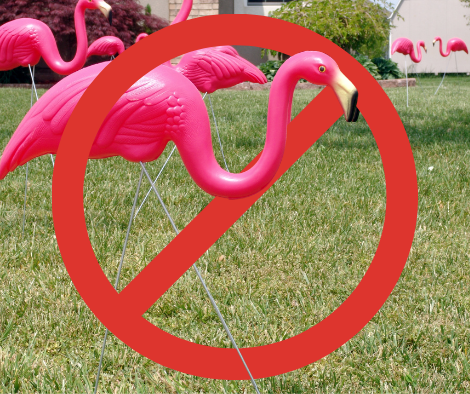Ask anyone who lives in the predominantly HOA (Home Owners’ Association) culture of living in Southern Delaware whether or not they like that form of Big Brother. Their reactions will be mixed, guaranteed.
Homeowners’ Associations, also known as Condominium Owners’ Associations (COAs) come with some logical rules and conveniences, such as property management (trash removal, lawn maintenance, etc.). And when you purchase your home in one of these neighborhoods, you are also obligated to adhere to rules and regulations that often aren’t very clear. Until you actually live there.
The beauty of living in a community governed by a Homeowners Association (HOA) is pretty much about convenience.
No more mowing the lawn. No more cleaning a pool. There’s a gym. No more snow removal. Trash removal and recycling is a breeze! No bill for all the forementioned, although we all know that there’s a fee, sometimes hefty depending on where you reside.
Estimates for Delaware HOA monthly fees range from $125 to $400+ (but amenities of course vary widely, such as having a golf course on site).
So why pay this monthly bill in addition to a mortgage? Here are the advantages.
Landscaping, oh my. Most local HOA fees include irrigation systems already there (no more watering during the hot droughts of Delaware summers). Mulching in spring, gutter cleaning year round when you request it. A dog park that has pet waste removed regularly. Strict rules on what you can – or not – plant.
In other words, your next door neighbor can’t just plant a palm tree, even if he thinks it is a good idea. Most projects for improvement require approval, and that protects your own property value.
And then there is the pool, the pickleball and tennis courts, the community garden that is also watered automatically by the sprinkler system. There’s usually a gym (but warning, they are typically way smaller than those of commercial grade) and mailboxes where you can unexpectedly meet neighbors you didn’t even know you have.
In some neighborhoods, there are dog parks or walking trails that enhance your lifestyle without having to drive somewhere to get the same exercise and comradery.
An odd thing about moving to an HOA (or COA) community comes down to this: are you willing to give up the independence of owning your property to an anonymous board or independent entity? Are you okay with rules about whether or not you can plant a rhododendron or not?
The advantage of diminishing multiple utility bills (like trash hauling or snow removal) is lovely. Thirty bills a month can suddenly be reduced to five – especially attractive if travel is in your plans. You still have to pay for basic utilities, of course.
An HOA can be your best friend when you retire, and in particular, if you don’t live in southern Delaware full time, you can rest assured that your property will be looked after and perhaps improved.
Now, let’s address the other side of the story.
An HOA requires lots and lots of signatures. You have to agree to a bunch of rules, even before you may realize how inhibiting they may be, such as getting your deck and patio approved. Typically, there are architectural committees that need to approve plans to ensure it “blends” with the neighborhood’s feng shui.
Fees for improvement plans can be ridiculously expensive if you don’t prepare your homework.
There is also the risk of invasive scrutiny when you live in an HOA community. There are times when you might feel as if you are in a fishbowl, real or perceived.
Chances are, however, the people who chose your neighborhood have the exact concerns that you do. You probably already have a lot in common, so it’s a great opportunity to bring up mutual subjects and work together on solutions.
Keep these goals of HOAs in mind.
Neighborhood aesthetics. Safety. Consistency. New friendships and a finely mowed lawn.



Not all landscaping co are alike ours is a pick up crew lucky if you see the same worker three times 26 mowing a year with tons of leaves piled high